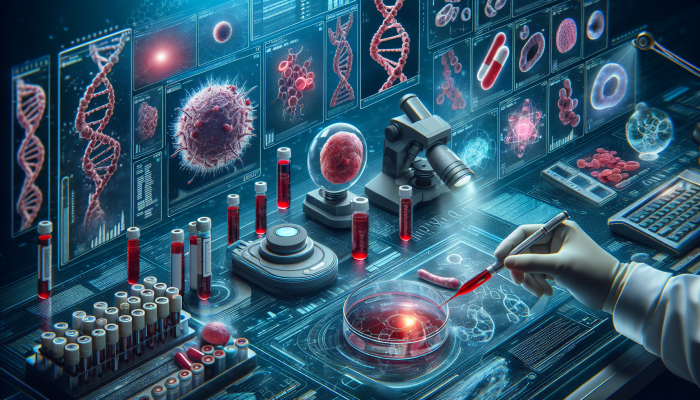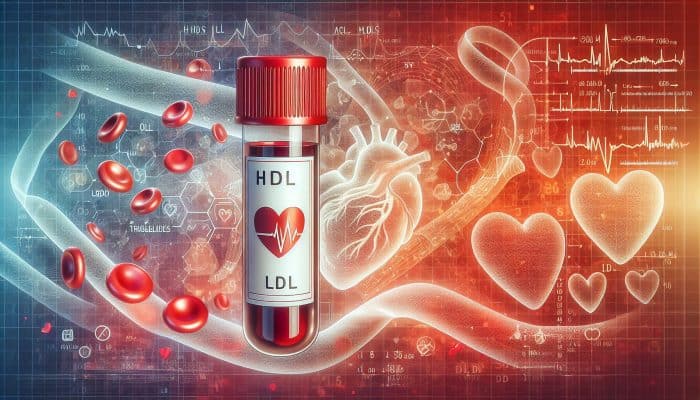Revolutionizing Cancer Detection: Harnessing Advanced Blood Tests and Innovative Technologies for Early Diagnosis
The realm of cancer detection is undergoing a remarkable evolution, primarily fueled by cutting-edge advancements in blood tests for assessing cancer risk. These state-of-the-art testing methodologies represent a substantial progression in the identification of potential cancer biomarkers within the human body, allowing for earlier interventions that significantly enhance patient outcomes. It is essential to grasp the complex principles underlying these tests, alongside the latest pioneering technologies emerging in this crucial healthcare sector, to effectively navigate the intricate landscape of cancer diagnostics.
Deep Dive into Blood Test Mechanisms for Cancer Risk: In-Depth Exploration

At the heart of blood tests for cancer risk lies the essential identification of specific biological indicators known as biomarkers. These critical biomarkers act as vital signals that can indicate the presence of existing cancer or an elevated likelihood of developing cancer in the future. They include a diverse array of substances, such as proteins, genes, and other materials produced by malignant cells or by the body’s immune response to cancer. The scientific foundation of these groundbreaking tests relies on advanced methodologies that effectively identify these markers, utilizing a wide range of sophisticated technologies.
A prominent methodology employed in these evaluations is the liquid biopsy. This innovative technique involves analyzing a blood sample to detect elements such as circulating tumor DNA (ctDNA) and circulating tumor cells (CTCs). The non-invasive nature of this approach allows for comprehensive assessments of a patient’s cancer risk without necessitating more invasive procedures like traditional biopsies. Moreover, advancements in technology, particularly in next-generation sequencing (NGS), have significantly enhanced the sensitivity and specificity of these tests, enabling them to detect even the most subtle traces of ctDNA.
The precision of blood tests for cancer risk is intricately linked to our understanding of cancer biology. Distinct types of cancer release unique biomarkers into the bloodstream, propelling ongoing research dedicated to discovering new markers that can serve as early warning signs. For example, monitoring the levels of prostate-specific antigen (PSA) is common for assessing prostate cancer risk, while the CA-125 marker is frequently associated with the detection of ovarian cancer.
Furthermore, the integration of artificial intelligence (AI) into the interpretation of test results is dramatically transforming this field. AI algorithms have the capability to analyze vast datasets, uncovering patterns that might escape human analysts, thereby greatly enhancing the predictive power of these tests.
Exploring Trailblazing Innovations in Blood Tests for Cancer Risk: Major Breakthroughs
The field of blood tests for cancer risk is currently witnessing remarkable innovations that have the potential to redefine cancer screening and prevention strategies. One particularly impactful advancement is the introduction of multi-cancer early detection (MCED) tests. These groundbreaking tests are designed to identify multiple types of cancer from a single blood sample, significantly reducing the need for invasive procedures while enhancing overall patient comfort and satisfaction.
Recent research has shown that MCED tests can successfully detect cancers at their earliest stages, often before any clinical symptoms arise. This early detection is crucial, as it is directly correlated with improved treatment outcomes and increased survival rates. For instance, a study published in a prominent oncology journal highlighted the exceptional ability of an MCED test to identify malignancies that are typically challenging to diagnose early, including pancreatic cancer and ovarian cancer.
Another significant advancement in this area involves the investigation of methylation patterns present in circulating DNA as a diagnostic approach. Alterations in methylation can signify cancerous processes, prompting researchers to explore how these patterns can be leveraged for more accurate cancer risk assessment. This innovative technique could potentially provide a highly sensitive method for detecting malignancies for which effective screening protocols are currently lacking, thereby advancing patient care.
Additionally, collaborations between technology firms and healthcare providers are propelling the development of innovative diagnostic tools. These partnerships aim to harness big data and machine learning to enhance blood sample analysis, leading to more precise risk assessments and personalized management strategies for patients.
Investigating the Transformative Influence of Liquid Biopsies on Cancer Detection and Treatment
Liquid biopsies signify a groundbreaking advancement in the landscape of blood tests for cancer risk. Unlike traditional biopsies that necessitate invasive tissue samples, liquid biopsies provide a minimally invasive alternative that can be performed multiple times, allowing for continuous monitoring of cancer progression or responses to treatment. This capability is particularly beneficial for patients who may not be suitable candidates for surgical biopsies due to various health conditions.
Liquid biopsies function by isolating and analyzing ctDNA or CTCs obtained from a blood sample. The ability to monitor these cellular components yields critical insights into tumor behavior and potential genetic mutations that may arise throughout the disease’s progression. For instance, identifying specific mutations can assist oncologists in selecting targeted therapies, thereby personalizing treatment plans for enhanced therapeutic effectiveness and success rates.
The integration of liquid biopsies into clinical practice is already producing promising results. Recent clinical trials have shown that these tests can detect recurrences in patients who have previously undergone cancer treatments, often several months earlier than traditional imaging techniques. This timely detection can lead to prompt interventions, ultimately improving survival outcomes and overall patient health.
Moreover, liquid biopsies enable real-time monitoring of treatment responses. By evaluating ctDNA levels during therapy, healthcare professionals can assess the effectiveness of the treatment regimen and make necessary adjustments to optimize patient care. This forward-thinking approach to monitoring signifies a substantial shift towards more dynamic management of cancer care, ensuring that patients receive tailored treatment that meets their individual needs.
In summary, blood tests for cancer risk, particularly through the implementation of liquid biopsies, are revolutionizing the oncology field. Their potential for early detection, ongoing disease monitoring, and personalized treatment strategies positions them as invaluable tools in the relentless fight against cancer. As research and technological advancements continue to progress, the prospects for these tests to enhance patient outcomes and redefine cancer care remain exceptionally promising and optimistic.
Join Our Community: Connect With Us on Facebook for the Latest Updates!

Originally Published On https://bloodtest.co.uk
The Article: Blood Tests for Cancer Risk: Pioneering Early Detection Methods first appeared on: https://ezbloodtest.com
The Article Cancer Risk Blood Tests: Innovative Methods for Early Detection Was Found On https://limitsofstrategy.com
References:
Cancer Risk Blood Tests: Innovative Methods for Early Detection



